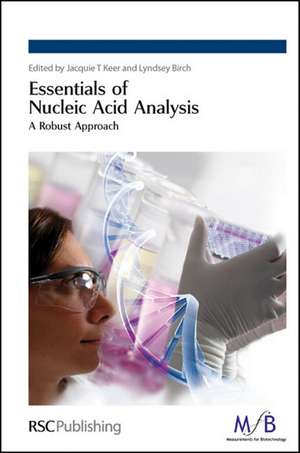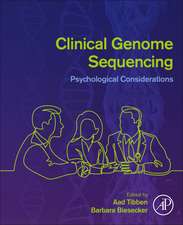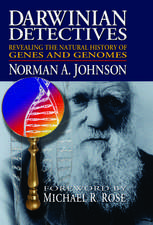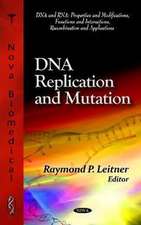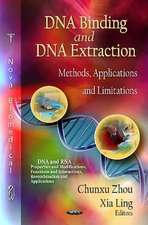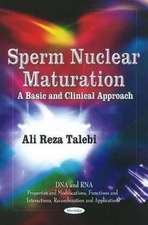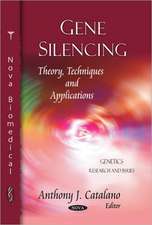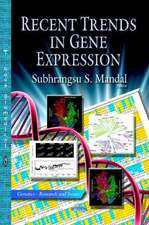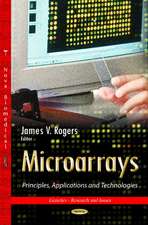Essentials of Nucleic Acid Analysis
Editat de Jacquie T. Keer, Lyndsey Birchen Limba Engleză Hardback – 31 ian 2008
Over the last decade there has been a rapid development of molecular techniques, with an increasing range of instrumentation now available. The development of accompanying reference literature has not kept pace with technological advances and this poses significant challenges to the analyst. Essentials of Nucleic Acid Analysis sets out to guide the analyst through the steps needed to obtain good quality results in DNA analysis. The underlying principles for achieving this goal were formulated by LGC (formerly the Laboratory of the Government Chemist) as the six principles for ensuring valid analytical measurement, which are detailed in the introduction. The reader is also provided with guidelines for method validation and quality control of established and emerging DNA measurement techniques. The authors of each chapter are practitioners of the art of DNA analysis in areas where the quality of the result is critical. Technical details and examples of application of key techniques in nucleic acid analysis are provided while highlighting best practice, available standards and practical advice on improving measurement quality. This book provides an indispensable handbook and premier reference for those working in the widely varying areas and specifically in the fields of food analysis and forensic applications.
Preț: 1028.66 lei
Preț vechi: 1196.12 lei
-14% Nou
Puncte Express: 1543
Preț estimativ în valută:
196.84€ • 206.98$ • 162.64£
196.84€ • 206.98$ • 162.64£
Carte disponibilă
Livrare economică 27 martie-10 aprilie
Preluare comenzi: 021 569.72.76
Specificații
ISBN-13: 9780854043675
ISBN-10: 0854043675
Pagini: 248
Ilustrații: 55 black & white illustrations, 9 colour illustrations
Dimensiuni: 160 x 240 x 21 mm
Greutate: 0.57 kg
Ediția:1
Editura: Royal Society Of Chemistry
ISBN-10: 0854043675
Pagini: 248
Ilustrații: 55 black & white illustrations, 9 colour illustrations
Dimensiuni: 160 x 240 x 21 mm
Greutate: 0.57 kg
Ediția:1
Editura: Royal Society Of Chemistry
Cuprins
Chapter 1: Valid Analytical Molecular Biology: The Challenge; Chapter 2: Quality in the Analytical Molecular Biology Laboratory; Chapter 3: An Introduction to Method Validation; Chapter 4: DNA Extraction; Chapter 5: DNA Quantification; Chapter 6: PCR: Factors Affecting Reliability and Validity; Chapter 7: Quantitative Real-time PCR Analysis; Chapter 8: Multiplex PCR and Whole Genome Amplification; Chapter 9: Procedures for Quality Control of RNA Samples for Use in Quantitative Reverse Transcription PCR; Chapter 10: Microarrays
Notă biografică
Dr Jacquie T Keer has a background in biochemistry and molecular biology, having done a degree at Oxford and a PhD at St Mary's Hospital Medical School. Dr Jacquie T Keer has a broad academic research background. Her areas of experience include medical microbiology, mammalian molecular genetics, protein analysis and all aspects of DNA and RNA analysis. Dr Jacquie T Keer has subsequently spent several years working in the area of applied molecular biology in support of the National Measurement System at LGC, in its role as the National Measurement Institute for chemical and biological analysis. Dr Jacquie T Keer has been responsible for managing a number of projects including, development of AFLP methods for the detection of Salmonella and VTEC, evaluation of SERRS for highly multiplexed biological assays and detection and quantification of Host Cell protein and DNA in biological products. Areas of expertise include application of real time PCR to the detection and quantification of trace level targets, and development of proficiency testing schemes for the molecular laboratory. Dr Lyndsey Birch has a background in Biochemistry, with both a degree and PhD from Liverpool. Her research work there focussed on cell cycle control and signal transduction pathways, and she has since broadened her experience to include development of novel methods for PCR analysis based on solid-phase capture systems in an in emerging biotechnology context. Dr Lyndsey Birch has subsequently spent several years working in the area of applied molecular biology in support of the National Measurement System at LGC, in its role as the National Measurement Institute for chemical and biological analysis. Areas of expertise include application of real time PCR to the detection and quantification of trace level targets, and development of proficiency testing schemes for the molecular laboratory.
Textul de pe ultima copertă
Over the last decade there has been a rapid development of molecular techniques, with an increasing range of instrumentation now available. The development of accompanying reference literature has not kept pace with technological advances and this poses significant challenges to the analyst. Essentials of Nucleic Acid Analysis A Robust Approach sets out to guide the analyst through the steps needed to obtain good quality results in DNA analysis. The underlying principles for achieving this goal were formulated by LGC (formerly the Laboratory of the Government Chemist) as the six principles for ensuring valid analytical measurement, which are detailed in the introduction. The reader is also provided with guidelines for method validation and quality control of established and emerging DNA measurement techniques. The authors of each chapter are practitioners of the art of DNA analysis in areas where the quality of the result is critical. Technical details and examples of application of key techniques in nucleic acid analysis are provided while highlighting best practice, available standards and practical advice on improving measurement quality. This book provides an indispensable handbook and premier reference for those working in the widely varying areas and specifically in the fields of food analysis and forensic applications.
Descriere
An indispensable handbook of the highest standard for those working in the fields of food analysis and forensic applications.
